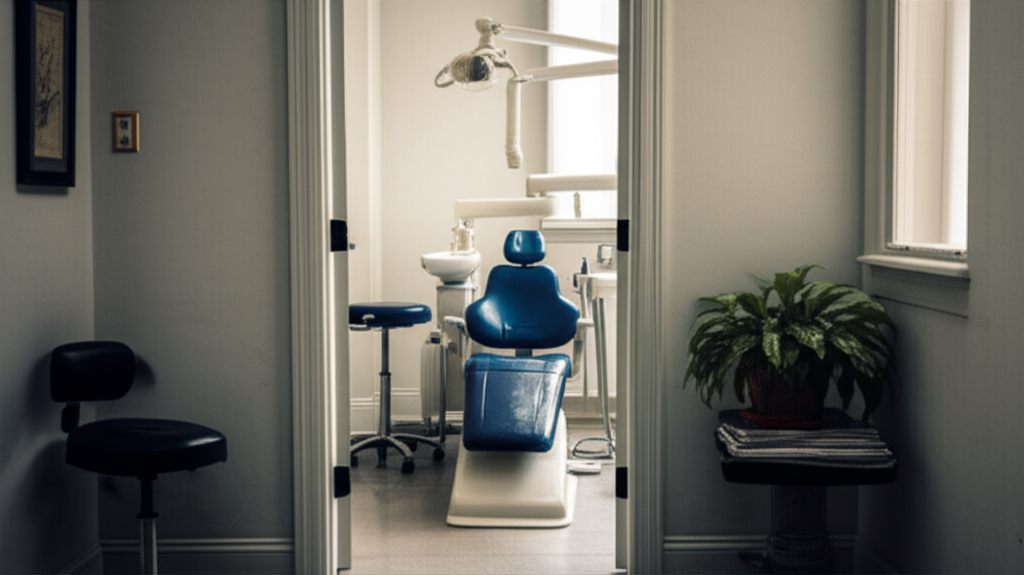
Are Dentists a Scam? Separating Fact from Fiction in Dental Care
Let’s start with what you’re really asking. Are dentists a scam or does going to the dentist just feel confusing, expensive, and hard to trust? You’re not the only one to feel this way. Maybe you got a treatment plan that cost much more than you expected. Maybe you saw two dentists and got totally different stories. Or maybe your dental insurance didn’t pay for what you needed.
Your feelings are real. Dental work isn’t cheap. Payment plans can be hard to understand. Opinions can be all over the map. But that doesn’t mean dentistry is a scam. It does mean you should expect clear, honest answers and get help finding care that’s right and fair for you. This guide explains it all, using easy language, so you feel ready and sure before you agree to any treatment.
In short: Ask questions. Understand your options. Compare. Decide. Let’s do it together.
In This Article
- Why People Think Dentistry Is a Scam: Common Triggers for Doubt
- The Reality: Are Dentists Actually Scammers?
- How to Protect Yourself: Find a Trustworthy Dentist and Navigate Care
- Practical Ways to Lower Dental Costs Without Cutting Corners
- When Big Treatment Is Recommended: Your Options Explained
- Who Is This For? Are You a Candidate for Common Procedures?
- Frequently Asked Questions
- Your Healthy Takeaway
Why People Think Dentistry Is a Scam: Common Triggers for Doubt
Here’s why lots of people feel nervous, tricked, or let down by dental care.
High Prices and Not Enough Information
- Prices can be a real shock. Crowns, root canals, implants, and veneers cost a lot. The price can be different in every town and office. A crown could cost just under a thousand dollars or run a few thousand, based on what it’s made from, lab work, and if the tooth needs extra support. Implants often cost a few thousand dollars for each tooth.
- The cost comes from more than just the dentist’s time:
- The office has machines like digital X‑rays, 3D scanners, and equipment to keep things clean and safe.
- Good materials cost more—things like strong fillings, crowns, or titanium implants.
- Dentists have trained team members, follow health laws, and carry insurance.
- They use computer systems to keep your data safe.
- Insurance almost never pays as much as you hope. Dental plans cut you off after hitting a limit each year. Big jobs like crowns and root canals might only get partial coverage. You may have to pay a set amount first, and “in‑network” dentists are sometimes much cheaper than “out‑of‑network”.
- The bills can be very hard to understand. They often use codes (CDT codes), with little explanation. If you don’t know what they mean, the bill just looks like a bunch of letters and numbers, not a clear list. Some offices give an itemized bill with everything broken out. Not all of them do.
- What helps is clear info: You should get a straight-up price breakdown before work starts.
Too Much Treatment and Mixed Messages
- One dentist says you’re fine. Another says you need a filling “just in case.” Who’s right? In dentistry, there’s usually some gray area.
- Some dentists like to fix things early, others are relaxed. One might treat a small problem to stop it from getting worse. Another might just keep an eye on it. Both can be okay if they explain it.
- Even the pictures (like X-rays) don’t always show everything. It’s like going to a car shop: One person says the noise means you need a repair soon; another says “let’s wait.” You have to decide.
- Some treatments are for looks, not health. You may want veneers for a prettier smile, but need them rarely. Good dentists will tell you the difference.
Bad Experiences and Trust Issues
- Bad visits stick in your mind. Maybe you felt rushed. Maybe the dentist didn’t listen or explain. Maybe the visit hurt.
- If you felt talked into a fast decision, it feels worse—not better.
- Some offices try to sell you extra stuff you didn’t ask for, which is a red flag.
The Reality: Are Dentists Actually Scammers?
Short answer: No. Almost all dentists want to help, not cheat you. Sometimes there’s a bad one or a simple mistake, but that’s the exception.
Most Dentists Are Honest and Want To Help
- Dentists go to school for years, pass tough tests, and keep learning. Their work is watched over by State Dental Boards and organizations like the American Dental Association.
- Most pick the safest, simplest care if they can. They’ll tell you the risks, get your “okay” before starting, and write everything down to protect you and themselves.
- Dental specialists (like root canal dentists, gum specialists, implant and braces specialists, and kid dentists) exist to handle tough cases, not to just make money.
Running A Dental Office Costs A Lot
- Today’s dental tools and machines are expensive. Digital X-rays mean less radiation and more info. 3D scanners help with implants and crowns. These tools make care better, but drive up what practices have to pay just to be open.
- The stuff that goes in your mouth—like fillings, crowns, and implants—costs more if it’s higher quality, but it lasts longer. Good labs matter a lot too. For example, a crown made by a skilled crown and bridge lab can fit better and last longer than a cheap one.
- Dentists pay staff, rent, utility bills, and insurance—lots of things you don’t see.
- The cost you pay isn’t all profit. Much of it covers these real business costs.
Real Dental Fraud Is Rare, But It Happens
- True fraud means charging for work not done, “bumping up” to a pricier code, or changing records. This is illegal and serious.
- The state board and insurance companies investigate these problems.
- One bad dentist doesn’t mean they’re all bad.
How to Protect Yourself: Find a Trustworthy Dentist
You don’t need to be a dentist to be smart about your care.
How To Check If a Dentist is Good
- Read reviews on Google, Yelp, or Healthgrades—but look for patterns, not just a single bad story.
- Check your State Dental Board to see if they have a license or have had complaints.
- Ask your friends and family.
- Make sure the dentist’s style fits your needs. If you want things done slowly, look for someone who talks about “watch and wait”. If you’re nervous, ask if they do gentle numbing or sedation.
Compare Treatment Plans
- Get a written plan with everything listed: diagnoses, what’s being fixed, what other choices there are, the risks, how much it costs, and all the CDT codes.
- Always get a second opinion if the plan is big or expensive. Take your X-rays if you can.
- Check what materials are being used and ask why. Get the same info from both offices so you can compare.
Good Questions to Ask at Your Visit
- What happens if I do nothing?
- Can we wait and try prevention?
- Why a full crown rather than just a filling?
- Do I really need a root canal?
- Is this fix about looks or health?
- Can we do things in steps to fit my money situation?
- Ask for the full cost before anything starts. Ask about payment plans or companies like CareCredit if you need to spread out payments. Ask if your insurance works here.
- Your consent should be written and clear.
Red Flags and Green Flags
Red flags:
- High-pressure tactics or “special deals” if you buy now.
- Dodgy answers to your questions.
- Pushing you to do a lot of work quickly, before a full exam or new X‑rays.
- Trying to sell lots of cosmetic extras when you came for a health problem.
- Won’t give you a real estimate or break down the costs.
Green flags:
- The dentist checks your gums, checks for mouth cancer, and takes needed pictures.
- Preventive and simple ideas first, not jumping to big care.
- Gives you time to ask questions and think.
- Office feels clean, modern, staff are polite.
- Willing to send you to a specialist if you need it.
Practical Ways to Lower Dental Costs Without Cutting Corners
You don’t have to risk your health to save money.
Prevention Is The Real Saver
- Regular cleanings and check-ups catch problems while they are small.
- The dentist tells you how often you really need X-rays—some people need more, some need less.
- Brush twice a day with fluoride toothpaste, floss or use tiny brushes, and eat less sugar.
- If you grind your teeth, get a good night guard. Store-bought ones are usually not enough.
Make the Most of Your Insurance
- Learn your dental insurance basics: yearly max, what is covered, how big your co-pays are, and what “network” means for cost.
- Going to a dentist your insurance covers can cut your costs a lot.
- If big work is needed, sometimes you can split it across years to get more covered.
- If you have no insurance, check out dental savings or discount plans, but read the fine print.
- Medicaid (in some states) and Medicare Advantage sometimes have dental benefits—especially for kids.
Find Cheaper, Trusted Care
- Dental schools. University clinics cost less. Students or dental residents do the work, but teachers check everything.
- Community clinics. These places use a sliding scale, so you pay less if you earn less.
- Ask about payment plans or financing before you agree to anything.
- Compare prices between offices if you get a big quote. Make sure they’re using the same materials and steps.
When Big Treatment Is Recommended: Your Options Explained
Here is a simple explanation of the main choices, without any sales talk.
Fillings vs Crowns
- Fillings fix small holes or chips. They’re cheaper and quicker but not as strong for big problems.
- Crowns act as a “helmet” for teeth that are broken or already have large fillings. Stronger and last longer, but cost more and involve more work on the tooth.
- If your tooth keeps breaking, a crown may be better. If the hole is small, a filling can be enough.
Do I Really Need a Root Canal?
- A root canal fixes an infected or sore nerve inside your tooth. Main signs: pain, swelling, or a bump on the gum.
- Other option: You can pull the tooth out. This is cheaper today but can mess up your bite and cost more to fix later.
- You might need a crown after a root canal, especially on a back tooth. Sometimes front teeth do fine with just a filling.
Replacing Missing Teeth: Implants, Bridges, or Dentures
- Dental implant: Metal post goes in the bone, covered with a crown. Looks and works the most like a real tooth but costs more and takes longer. Some people need bone added first.
- Fixed bridge: False tooth attached to crowns on both sides. Faster and cheaper than implants, but makes the neighbor teeth smaller.
- Removable dentures: Cheaper for many missing teeth, but less comfortable and not as strong.
- Talk about what you want, need, and can afford. A good option for you is better than the “perfect” thing you can’t pay for.
If you’re curious about how implants and strong crowns are made, see what an implant dental laboratory does or how a zirconia lab makes metal-free crowns.
Gum Disease: Deep Cleaning
- “Scaling and root planing” is a deep cleaning below the gums. Tartar under the gums can ruin your teeth and bone.
- This costs more than a normal cleaning and you may need it a few times a year.
- A gum doctor (periodontist) handles tough cases.
Cosmetic Work: Veneers, Whitening, Straightening
- Veneers: Thin shells that cover your front teeth for a new look. Fast and look great, but cost more and need some tooth “shaved”. Not good if you grind a lot.
- Whitening: Home trays or in-office. Makes teeth lighter but can make them sensitive.
- Braces or “aligners” (like Invisalign): Straighten teeth and help bites. Price and time needed depend on how crooked things are.
Wisdom Tooth Removal and Being Put To Sleep
- Wisdom teeth often cause problems, so sometimes you need them out. Big cases go to an oral surgeon.
- You can have gas, pills, or IV medication to help you relax. This adds cost, so ask how safe it is and who’s watching you.
Emergencies
- If you break a tooth, lose a crown, or have swelling or pain, call your dentist first. For serious swelling or fever, visit urgent care or ER.
Who Is This For? Are You a Candidate for Common Procedures?
Here’s a quick guide, but always check with your dentist:
- Crowns: Good for cracked teeth or teeth with big fillings. Not good if you don’t have enough tooth left.
- Root canals: Fix a painful or infected tooth that still has enough left to work with. Not good if the root is cracked or jaw bone is missing.
- Implants: Good for healthy adults with enough bone. Not good for people with certain health problems or smokers.
- Bridges: Good if the teeth next to the gap already need fixing. Not as good if those teeth are perfect or gap is too wide.
- Veneers: Good for healthy front teeth that just need to look better. Not good for rotten or loose teeth.
- Braces or aligners: Good for crowded or gapped teeth, or jaw pain from bite problems.
- Gum treatment: Needed for unhealthy gums. Not optional if the gums bleed or have deep pockets.
Frequently Asked Questions
Is dentistry overtreated today?
Sometimes dentists have different opinions. That’s normal, not a scam. Always ask why a treatment is needed now—not just later. Getting a second opinion is a good move.
Why is dental work so expensive?
Materials, lab work, modern tools, and skilled team members all raise costs. Dental insurance acts more like a coupon, not like health insurance.
Do I need X-rays every year?
It depends. High-risk people need more. Low-risk people can go longer. Ask your dentist for your own schedule.
Is a crown always needed after a root canal?
Usually on back teeth, because they crack easier. Sometimes you’re okay with just a filling on a front tooth.
How often should my teeth be cleaned?
It depends on your risk and gum health. Most people do well with two visits a year. People with gum disease need more.
How can I spot a dental scam?
Look out for pressure sales, vague answers, missing cost breakdowns, or being pushed toward “extras” you didn’t want.
What is a DSO?
A Dental Service Organization manages groups of dental offices for things like billing and planning. The care can be good or not—look for the right office, not what company owns it.
What rights do I have as a dental patient?
You can ask questions, expect clear answers, get written consent, keep your privacy, and get copies of records.
What if I suspect fraud?
First, ask the office for an explanation. Still worried? Report it to your insurance or State Dental Board.
Are holistic dentists cheaper?
Not always—sometimes they’re more expensive. Ask what’s really needed, what science says, and compare.
Is dental tourism safe?
Some people do fine overseas. Others end up with problems. Hard to fix mistakes once you’re home.
Your Healthy Takeaway
Here’s what matters most:
- Most dentists are honest and want you healthy.
- High prices come from real expenses: tools, materials, staff, and labs.
- Fraud and scams are rare, but you should stay alert.
- Get a clear, broken-down estimate before work starts.
- Second opinions are always okay—especially for big decisions.
- Don’t skip checkups or cleanings to save money—it costs more later.
- Know your insurance plan and ask before you start.
- Cheaper options exist—schools and clinics can be good.
Ready to get started? Try one small step today:
- Call for an itemized plan—ask for CDT codes and what materials will be used.
- Book a cleaning and checkup if it’s been a while.
- Get a second opinion if you’re unsure.
- Check your dentist’s record with your State Board before big care.
You deserve clear answers, honest care, and fair prices. Ask questions. Write things down. Take your time. That’s not just good dental care—that’s good sense.
For trusted advice on your rights and what’s “normal,” check with groups like the American Dental Association or your state’s board. And remember: A good dentist will always explain why something is needed and welcome your questions.








